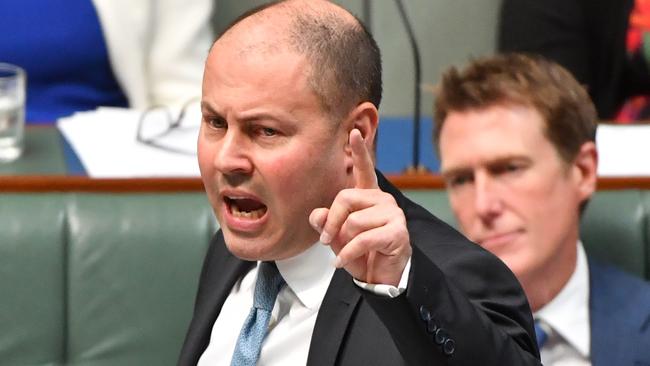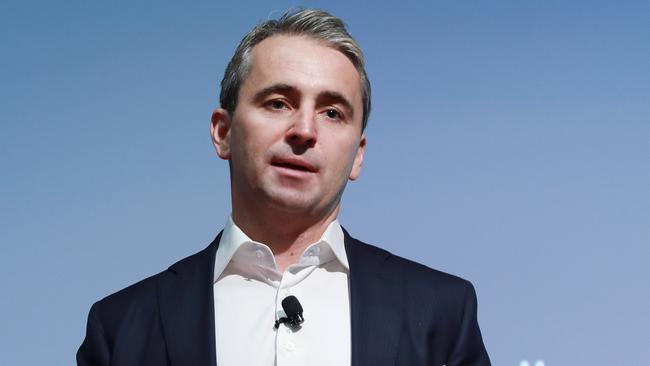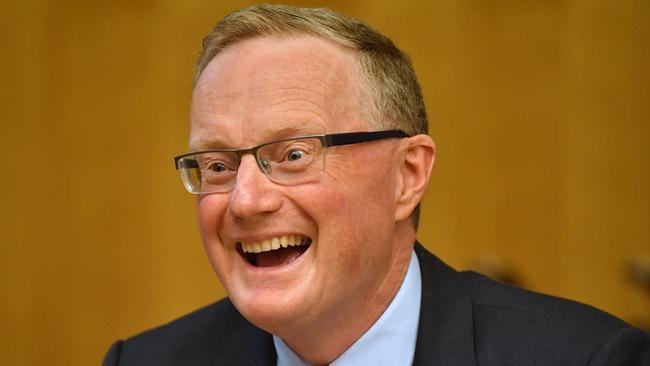Sticking with your bank cost you $1000 a year more in home loan interest
A Reserve Bank report says home-loan customers who are loyal to their bank are paying on average an extra $1000 a year in interest payments.
Business
Don't miss out on the headlines from Business. Followed categories will be added to My News.
Home-loan customers who are loyal to their bank are being slugged about $1000 a year more in interest payments, the Reserve Bank says.
The central bank has released research into mortgage rates that could pressure the banks over the so-called “loyalty tax”.
It shows the gap between rates on new and older loans — the discount newer customers receive — increases with the age of the mortgage.
The RBA said that in the group of home loans it studied, almost half the variable mortgages were issued at least four years ago.
These loans on average had an interest rate that was about 0.4 percentage points higher than those on new loans, it said in its quarterly Statement of Monetary Policy.
“For a loan balance of $250,000, this difference implies an extra $1000 of interest payments per year,” the RBA said.

The difference in loan rates has been dubbed a “loyalty tax” by some politicians, including Federal Treasurer Josh Frydenberg, who have likened the banking industry’s behaviour to that of the energy sector.
Energy retailers have previously come under scrutiny for offering lower prices to new customers while charging loyal customers with higher prices.
The banks have defended themselves, saying older mortgages reflected funding costs and other factors at the time the loans were written.
Last year, Commonwealth Bank chief Matt Comyn hit back at suggestions there was a loyalty tax, arguing that in many cases it made sense different interest rates were charged to different customers.

He joined his peers at Westpac and ANZ in welcoming an examination of mortgages by the Australian Competition and Consumer Commission, saying it was “a good opportunity” for the banks to provide more information about their decisions on interest rates.
The CBA disputed the notion existing customers were paying interest rates 0.3 percentage points or more above the discounted rates designed to lure new borrowers.
The RBA’s analysis on Friday also pointed to steep discounting by banks and other lenders to win new customers.
The discount had widened from about 1 percentage point in 2015 to 1.5 percentage points last year, it said.
Part of the difference between older and newer mortgage rates could be explained by a shift in the mix of variable mortgage types, the RBA said.
Meanwhile, RBA governor Philip Lowe expects the coronavirus to hit Australia’s economy harder than the SARS epidemic earlier this century did in 2003.
And the economy is doing “OK”, although it could be performing better, Dr Lowe said. But he feared Australia was becoming a less dynamic place than it used to be.

Speaking in Canberra on Friday, Dr Lowe reiterated that more extreme stimulus measures — such as the money printing program known as quantitative easing — were not on the agenda in Australia.
Dr Lowe was making the latest of his twice-yearly appearances before the House of Representatives economics committee.
RBA assistant governor Luci Ellis, speaking at the same event, said the scheduled lift in the compulsory superannuation rate next year meant the benefits of a tighter labour market in the next the coming two years would not translate into higher wages.
It was put to Dr Lowe that Australian economy’s heavy reliance on China made the potential impact of the coronavirus outbreak “significantly higher” than SARS epidemic.
The governor He agreed, saying: “That would be my assessment”.
That was despite the RBA twice this week saying the short and sharp SARS event was the precedent to which the central bank it was looking for now.
Dr Ellis, who is responsible for the RBA’s economics department, repeated that the bushfires of recent weeks were likely to cut 0.2 percentage points off GDP growth for the six months to March and the coronavirus would shave 0.1 percentage points this year.
Dr Lowe also said there had been some early signs the virus was interrupting supply chains and there were even examples of Chinese companies unable to make deliveries.
The Australian
